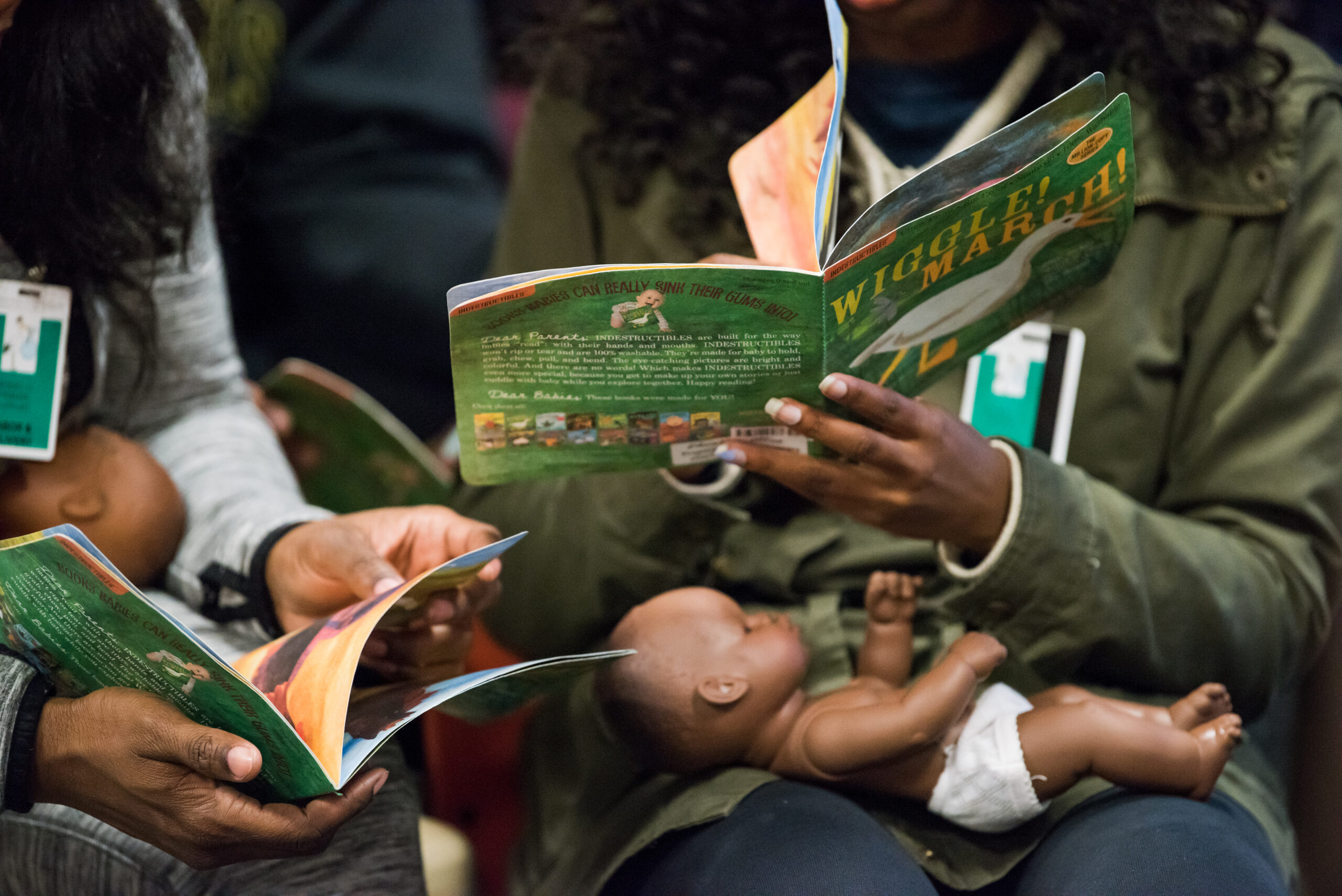Psychology professor Susan Sonnenschein is on a mission to help the parents of premature or medically fragile babies make the most of their time in the neonatal intensive-care unit (NICU).
As a former NICU mom herself, she is delighted that parents at the University of Maryland Medical Center NICU enjoy the Mother Goose on the Loose (MGOL) “Goslings” program and follow the early literacy strategies taught in the hour-long workshop there. As a scientist and the program’s evaluator, she wants to make sure the resulting data matches the participants’ enthusiasm.
Based on Betsy Diamant-Cohen’s nationally recognized Mother Goose on the Loose program, which promotes early literacy for parents and caregivers with children from birth to age the three, the Goslings program gives new parents and caregivers tips on how to incorporate literacy practices in the NICU and beyond. Goslings workshops help families of premature babies, as well as medically fragile full-term babies, bond with their children by learning when and how to stimulate their language development through singing, reading, and play, and by using “I’m happy and ready” body language.
“Liking the program is a necessary step, but it is not enough. The goal of the program is to make sure the families are engaging with their baby in a developmentally appropriate way not just during their hospital-guided workshop but at home as well,” explains Sonnenschein.
It was for this reason that Brenda Hussey-Gardner, associate professor of pediatrics at the University of Maryland School of Medicine and adjunct psychology professor at UMBC, reached out to her colleague to evaluate the effectiveness of the program, which received funding from the PNC Foundation Grow Up Great initiative for development, implementation, and evaluation. Port Discovery Children’s Museum also brings its expertise in language, literacy, and play to the project by administering the program delivery with trained facilitators.
Sonnenschein enlisted doctoral students Rebecca Dowling ’16, M.A., applied developmental psychology, and Lisa Shanty ’13, M.A. ’16, applied developmental psychology, both of whom were interested in educational interventions. Dowling had experience as an Education Coordinator in Americorps and had already helped Sonnenschein to develop a math workshop for Maryland State Head Start Association meetings. This process helped her develop an interest in implementing effective interventions that supported teachers, specifically in early childhood education.
Shanty’s prior experience came from working as an intern for Hussey-Gardner in the University of Maryland Medical Center NICU Follow-Up Program, where she worked with whole family units to support the development of infants and toddlers. When she heard about the researcher, she did not hesitate to take another opportunity to gain early childhood research and applied learning experience.
Led by Sonnenschein, Dowling and Shanty gathered and analyzed pre- and post-test data from families about the usefulness of the strategies they learned to better communicate with their child, and their comfort level in applying the strategies independently in the hospital and after being discharged.
“Collaboration is key. Being part of the process together, figuring out the intricacies of working with other researchers, stakeholders, and having consistent data is what adds value for professors and students,” reflects Sonnenschein. “There are many opportunities in the Applied Developmental Psychology program to gain experience and apply what students are learning in the classroom to real life.”
The UMBC evaluation team found parents were adopting the strategies and ideas taught in the Goslings workshop in a developmentally appropriate way while their child was in the NICU. What has yet to be determined is the effects of the program once babies have graduated from the NICU and are at home. The team hopes that during this third year of the pilot program, further funding will allow for more data to be gathered to determine the program effectiveness long after families have left the hospital.
— Catalina Sofia Dansberger Duque
Photos by Marlayna Demond ’11 for UMBC Magazine


